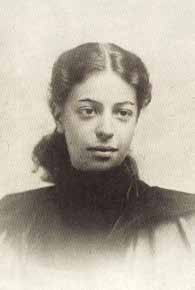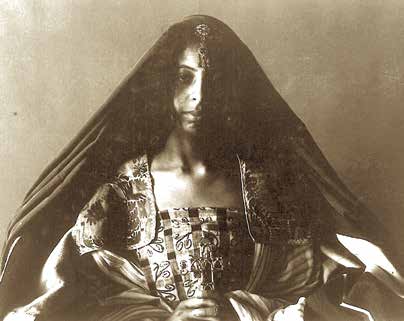 By Dr. Bill Lipsky–
By Dr. Bill Lipsky–
Being young, gifted, black, female and lesbian was not necessarily the recipe for success in early 20th century America, no matter how distinguished and renowned your family lineage. Angelina Weld Grimké was an exception. Born into a prominent family that championed freedom and equality for both minorities and women, she became a teacher, playwright, poet, essayist and compelling advocate for civil liberty and the unalienable rights of all people.
Angelina was the great-granddaughter of John Grimké, a wealthy and influential South Carolina planter and Mayor of Charleston who owned hundreds of slaves. Two of his daughters and Angelina’s great-aunts were Sarah and Angelina Emily Grimké (her namesake), who in 1835, then living in Philadelphia, became the first daughters of the South to advocate that the “peculiar institution” be abolished, even though public speaking at the time was considered unseemly for females.
Back in South Carolina, younger brother Henry W. Grimké and Nancy Weston, a family slave, lived together in a common-law relationship. Angela’s future grandparents, they had three sons, whom Henry fully recognized. After he died, Sarah and Angelina Emily learned of the children, still enslaved, and brought them to the North, supported them and helped them to get an education. Archibald Grimké, the eldest, became the second African American to graduate from Harvard Law School. He went on to a distinguished career as an attorney, diplomat and human rights activist.
Archibald met Sarah Stanley while he was practicing law in Boston. Although her family strongly objected—he was black, she was white—they wed anyway. The marriage did not last very long. Soon after Angelina was born in 1880, Sarah returned to her family with the infant. When the child was seven, however, Sarah sent Angelina back to Massachusetts to live with her father. Angelina never saw her mother again.

Angela Weld Grimké as a young woman
After graduating in 1902 with a degree in physical education from the Boston Normal School of Gymnastics, now part of Wellesley College, Angelina was first a gym instructor and then an English teacher in Washington, D.C. In 1915, the then seven-year-old National Association for the Advancement of Colored People (NAACP) asked her to write a play to counteract the defamations against African Americans shown in D. W. Griffith’s epic film The Birth of a Nation.
Originally titled Blessed Are the Barren, Grimké’s work, now named Rachael, was first performed in 1916 in Washington, D.C., and a year later in New York City. In Plays of Negro Life (1927), the gay educator and author Alain Locke, the first African-American Rhodes Scholar, wrote that Rachel was “apparently the first successful drama written by a Negro and interpreted by Negro actors.” He may not have known that it was also the first play produced in the U.S. to be created by a lesbian African American widow.
Angelina had a very early awareness of her authentic self. Answering a letter from Mamie Burrill when she was 16, she responded to the girl’s inquiry, “Angie, do you love me as you used to?” by writing her, “Oh Mamie if you only knew how my heart beats when I think of you … . I know you are too young now to become my wife, but I hope, darling, that in a few years you will come to me and be my love, my wife!”
Grimké also expressed her feelings for women in her poetry. Although she wrote on many themes, a large number of her poems express her desire to love and to be loved by another woman. Often her beloved is idealized:
The idol that I placed
Within this modest shrine
Was but a maiden small
But yet divinely pure,
And there I humbly knelt
Before those calm, grave eyes,
Full oft throughout the night,
And oft at moments sweet
Purloined throughout the day … .
Sometimes she is unapproachable:
Thou art to me a lone, white, star,
That I may gaze on from afar;
But I may never, never, press
My lips on thine in mute caress,
E’en touch the hem of thy pure dress,—
Thou art so far, so far.
Only occasionally is she sensual, not ennobled, although intimacy is still just imagined:
Little lady coyly shy
With deep shadows in each eye
Cast by lashes soft and long,
Tender lips just bowed for song,
And I oft have dreamed the bliss
Of the nectar in one kiss.
Grimké published very little of her poetry during her lifetime. She retired from teaching and moved to New York City in 1926, where she died on June 10, 1958. Rachel was her only book published during her lifetime, but her fiction, reviews and biographical sketches appeared in important journals. Her poems were included in numerous collections, including anthologies edited by the gay poet and playwright Countee Cullen (1927) and the gay poet and social activist Langston Hughes (1949), among others.

Angela Weld Grimké in middle eastern costume
Now considered an important forerunner of the Harlem Renaissance, a collection of her poems finally appeared in 1991. The first African American woman whose poetry shares her feelings as a lesbian and her love of other women, she also continued the work of her forebears in the ongoing campaign for liberty and equality for all people. “I know nothing of men’s rights and women’s rights,” she wrote. “I recognize no rights but human rights.”
Bill Lipsky, Ph.D., author of “Gay and Lesbian San Francisco” (2006), is a member of the Rainbow Honor Walk board of directors.
Recent Comments